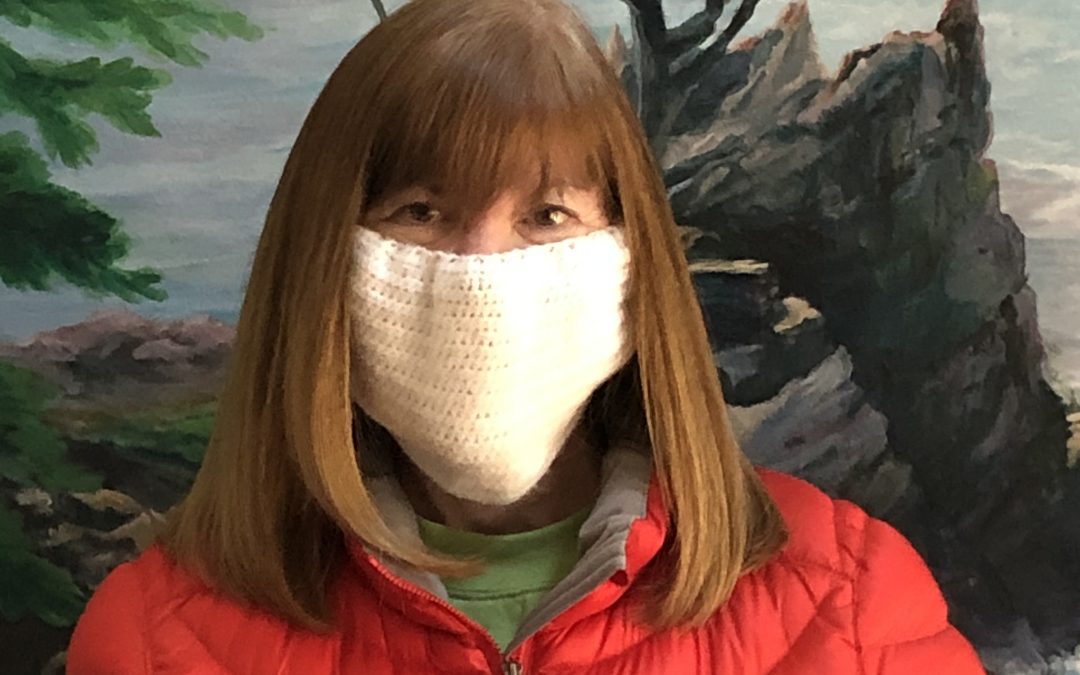My Morning Musings: To Facemask or Not to Facemask
To facemask or not to facemask? Good golly, Miss Molly. How on earth did facemasks become such a contentious issue? I’ve been sitting on this musing for quite some time because I wanted to write when I had peer-reviewed (not pre-printed) articles to read and summarize. We must remember that this is a new – novel – virus, so research on the virus is also new and just appearing in the professional literature. Science takes time and we’re only 4-5 months into this pandemic. Per my previous musings, we learned that science builds upon previous science. And that brings us to now. Yes, facemask-wearing rules have changed, just as more scientific evidence became available. And what we know now is that community-wide wearing of facemasks reduces the amount of emitted infected particles from saliva (spit) and respiratory droplets (exhaling, coughing, sneezing, and talking), thereby helping to mitigate disease transmission (spread) when used with other public health measures. Does facemask-wearing stop COVID-19 cold in its tracks? No. Does facemask-wearing lessen viral spread? Yes.
To break it down very simply, there are two types of masks with two different purposes: We have masks that protect YOU and masks that protect OTHERS from you. Here’s a good way to think about it.
(1) As its name suggests, personal protective equipment (PPE) protects you, the wearer, personally. These are the specially designed and fitted gear for healthcare workers aimed at protecting themselves from getting infected. PPEs prevent breathing in virus particles found in the air. Short and sweet: protect YOU from breathing IN particles.
(2) The masks citizens are being asked to wear protect others. These masks keep a lot of the particles from your breathing, coughing, sneezing, talking, and spitting (we know those people who can’t talk without also spitting) from reaching others. Short and sweet: protect OTHERS from your breathing OUT particles. If we get enough people wearing masks, we diminish spread.
What we currently know is that when combined with social distancing and frequent hand washing, facemasks provide protection. Moreover, consider these ancillary certainties of wearing a facemask: They prevent you from putting your hands or fingers in your mouth and then touching something else, which could potentially infect other people. We also know that some people are “silent spreaders” who may unknowingly have the disease. For these reasons, let’s look at our humanity and follow the “better safe than sorry” approach. If you sneeze or cough viral particles into common air that could be breathed in by a person who is immunocompromised or otherwise vulnerable, that could be detrimental to their health. But a facemask diminishes the viral load they breathe in. Isn’t that a good thing? And, if you are a proponent of using this virus to “cull the herd” or you subscribe to “survival of the fittest,” know that those are just modern-day euphemisms for genocide.
As a personal aside, it has warmed my heart to see the human spirit shine in coming together to make facemasks. Pre-COVID, many countries already wore facemasks to filter polluted air. Pre-COVID facemasks were boring. But look at what we collective humans have done. We’ve managed to still exert our individuality by making fashionable facemasks! I still wear a warming facemask that my grandma crocheted for me when I was in 6th grade. You see, I didn’t like to wear scarves, so Grandma made me several facemasks to wear on cold winter days while playing outside. Grandma died in 1994, but I’ll remember her as a woman ahead of her time. And while I’m still musing, unless you have abs that look like Saquon Barkley’s or thighs that look like Apolo Ohno’s, please wear a shirt and pants, too.
Signing Off for Science

